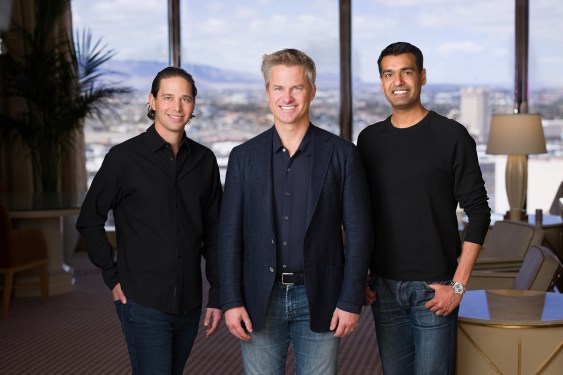Kevin Hartz has a history of being an early pioneer. In 2001, he co-founded Xoom at a time when sending money internationally typically required a visit to a Western Union office. The company went public in 2013 and was later acquired by PayPal for $1.1 billion in 2015. Four years after starting Xoom, he co-founded Eventbrite, which went public in 2018 and simplified the process of buying event tickets.
After working at Founders Fund, Hartz established his own venture firm, A-Star Capital. Then in 2020, he identified another trend ahead of the crowd: the SPAC boom. His blank-check company, named “one,” acquired the 3D printing company Markforged in a $2.1 billion reverse merger in 2021, just as other Silicon Valley financiers were embracing SPACs.
Now Hartz is focused on his next area of interest: teenage founders. This is not a social experiment but an emerging investment thesis. His firm recently invested in Aaru, an AI-powered prediction engine founded by someone too young to have a driver’s license. Hartz is far from alone in this focus. The dropout-and-build movement, famously associated with founders like Steve Jobs and Mark Zuckerberg, is becoming a standard path for a certain type of ambitious young person.
Consider Cory Levy, who interned at Founders Fund and other venture firms while still in high school before leaving the University of Illinois after his first year. He now runs Z Fellows, a one-week accelerator that provides technical founders, including high school students, with $10,000 grants. When Levy dropped out a decade ago, the Thiel Fellowship was a radical concept. Now, he says the community of dropouts is at an all-time high, noting that at a large dinner with 15 or 20 people, it is common that no one has a college degree.
This trend is significant enough that Y Combinator, which has long supported drop-out culture, recently introduced a program for students who want to start companies without leaving school. The program allows students to apply, get accepted and funded immediately, and then defer their Y Combinator participation until after graduation. This move is very much in line with the organization’s countercultural brand.
To learn more about this trend, I will be speaking with Hartz at the StrictlyVC event during TechCrunch’s Disrupt conference in San Francisco.
In a recent conversation, we began exploring the topic. When asked why we are seeing more teenage founders now, Hartz explained that he encounters very bright students who are simply bored in school. He sees Stanford freshmen and sophomores who, despite being at a top university, drop out with a strong desire to build and learn. He cited one company his firm backed with founders aged 18, 18, and 15, noting that this is not particularly unusual.
Comparing Z Fellows to the Thiel Fellowship, Hartz said they are incredibly similar. The main difference is that the Thiel Fellowship is a nonprofit, which may not hustle as hard, while Cory Levy has been actively building Z Fellows. He sees Peter Thiel as being ahead of the curve in recognizing the value of offering money to drop out, a phenomenon that continues to grow due to university costs and administrative issues, leading more teenagers to consider leaving school to build companies.
Regarding Z Fellows’ structure, Hartz clarified that the program offers a $10,000 grant with mostly no obligations, and later may invest $100,000 in pre-seed rounds for a select few.
On the topic of difficult job markets for graduates, Hartz pointed to a larger shift towards independent work, predicting that soon there will be more independent contractors than traditional employees. He sees this as American individualism and a move into entrepreneurial hyperdrive, partly driven by people being pushed out of roles due to efficiencies from AI.
When asked about the personal impact on a young founder whose company takes off, Hartz reflected on his own exhilarating yet challenging experience. He acknowledged that starting a company accentuates everything in life. He wonders if it is too soon to understand the full implications of this trend, but notes that seventeen is an age of fearlessness.
He believes we are at the very beginning of a major expansion in technology, especially in AI. While companies like OpenAI and Anthropic grow quickly in foundational models, the application layer is just starting to be developed, with many categories still open for disruption.
On a personal note, Hartz shared that his 17-year-old daughter is applying to colleges and wants the college experience. He has offered her alternatives, but she never really questioned going to school, and he will do the same with his younger daughter.
Finally, he revealed that close to 20 percent of his investments in the last year have involved teenage founders, a significant increase from about 5 percent just two years ago.

